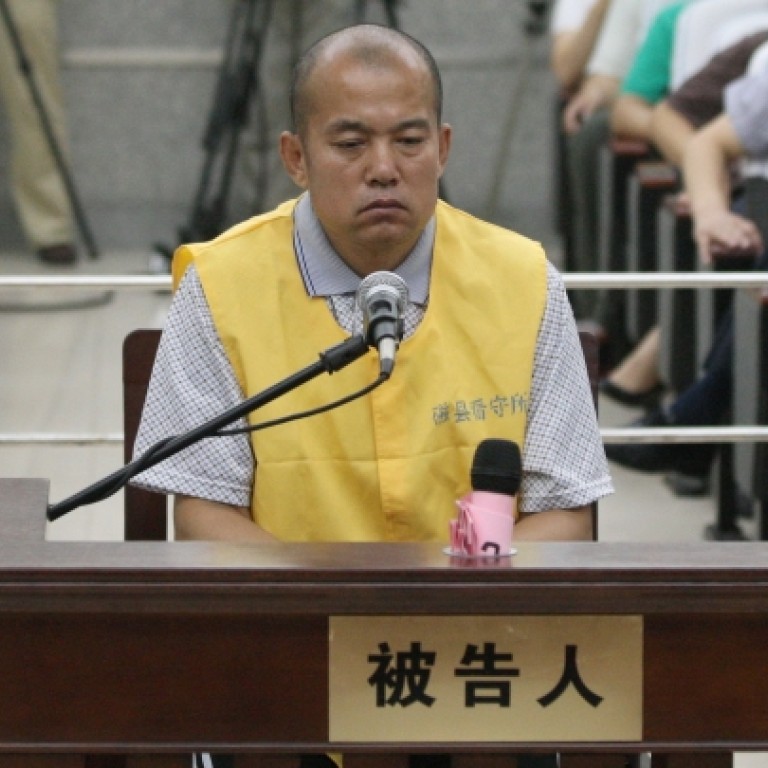
China's courts must face up to their own errors
Zhou Zunyou says public outrage over a likely case of wrongful conviction points to need for reform
The case of Nie Shubin has returned to the spotlight of public opinion. Nie was executed in 1995 for raping and murdering a woman in Shijiazhuang, Hebei province. In early 2005, the detained serial killer Wang Shujin, in a surprise confession, admitted to the Shijiazhuang crime for which Nie had been blamed.
In Wang's first-instance trial in 2007, he was sentenced to death for three rape and murder cases. But Wang appealed to the Hebei provincial court, arguing for leniency on account of his confession to the Shijiazhuang murder, and thus contribution to clearing Nie's name.
On June 25, the provincial court heard the appeal. Wang insisted on his guilt in the fourth rape and murder case, but prosecutors dismissed the claim because they said his testimony did not fully match the details of the crime.
Media reports on the latest trial sparked another round of heated discussion among legal professionals and human rights activists. It is widely believed that the outcome of this trial will be used to decide whether the Nie case should be retried.
Of course, if Wang is proven to be the real perpetrator, Nie must be exonerated. Here is the problem: Hebei authorities may be resolved to insist on Nie's guilt by denying Wang's involvement in the Shijiazhuang crime.
There are good reasons why the Nie case should be retried, even if Wang cannot be proved to be the real perpetrator.
First, Wang's firm confession has already undermined the trustworthiness of Nie's guilt. While it is possible that Wang is lying to save his own life, it is also very possible that he is indeed the perpetrator, as he claims. Even if the provincial court disputes it, the Hebei authorities have lost the credibility to maintain their stance on the Nie case.
Second, the evidence gathered at the original trial obviously fell short of the requirements for a criminal conviction. According to the Criminal Procedure Law, a guilty verdict is only possible where there is no reasonable doubt. Judging by the information uncovered for the Nie case, the evidence was far from sufficient for a conviction.
Third, any evidence obtained through torture should have been inadmissible. There has been some speculation that Nie was subjected to severe torture. Such speculation cannot be ignored because torture was highly pervasive in the 1990s. It is also corroborated by a local newspaper report written by a police detective responsible for the murder case.
According to the report, Nie initially denied the accusation but confessed after a week of , literally meaning "immediate and intensive interrogation". A frequently used police term in China, generally involves beating, sleep deprivation and other cruel treatment.
Finally, retrying the Nie case would be in line with the goal set by Zhou Qiang, president of the Supreme People's Court, to promote judicial credibility, itself a direct response to President Xi Jinping's call to uphold the rule of law and "let the people feel a sense of justice in every judicial case".
In April, at a judicial reform panel meeting with academics and lawyers, Zhou promised to co-operate with them in efforts to promote judicial credibility. Many legal scholars, including one of the attendees, He Jiahong, are openly calling for a retrial of the Nie case. Several prominent defence lawyers, led by Yang Jinzhu, have also echoed the call.
The Nie case has made a laughing stock of the Chinese judiciary. Back in March 2005, under intense public pressure caused by Wang's confession, Hebei's political-legal committee, a party organ in charge of legal affairs, had to face the media. The committee promised to establish a working group to investigate the case and publicise its findings within a month. To this day, it has not done so.
Despite having the legal authority to initiate a retrial of the Nie case, the Supreme People's Court appears to be content with being a spectator. If Zhou really means what he said, he should act.
The problem here is that we have to count on the Hebei party organ to correct its own mistake. In deciding whether the Nie case should be retried, the law and judges play only a secondary role. In view of this, how can the judiciary gain credibility?
In a recent interview, Guangdong's top judge Zheng E hit the nail on the head with his observation that China's judicial system operates under an outdated Soviet-style model that treats the courts as just another government agency. As for the solution to the problem, he spoke of reform to turn the judiciary into "real judges".
As a high-ranking party official, he is not allowed to explicitly argue in favour of judicial independence, a Western constitutional principle that China officially rejects. But in this case, "real judges" can be understood as being synonymous with judicial independence.

